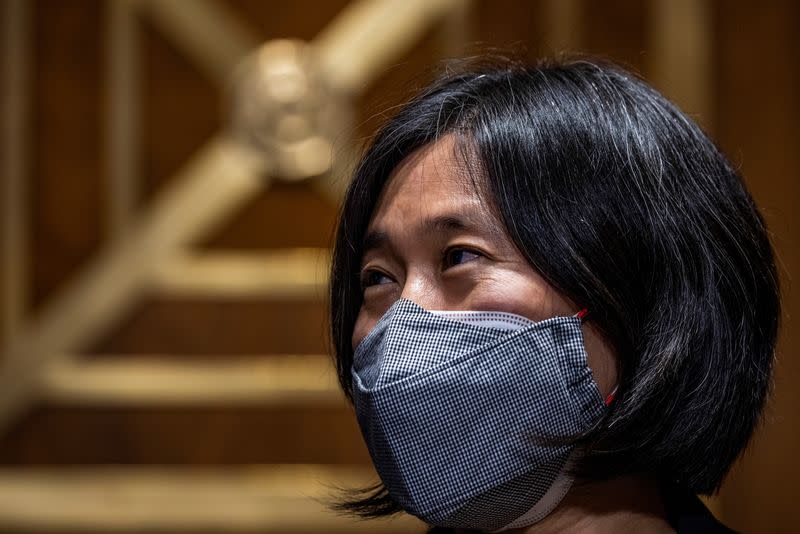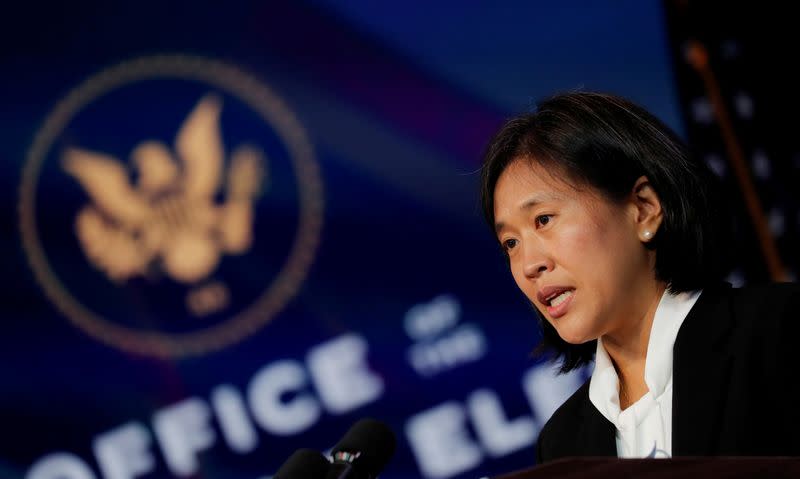Biden USTR nominee Tai vows to end trade 'race to the bottom,' counter China
By David Lawder and Andrea Shalal
WASHINGTON (Reuters) - Katherine Tai, President Joe Biden's top trade nominee, backed tariffs as a "legitimate tool" to counter China's state-driven economic model and vowed to hold Beijing to its prior commitments, while promising a sweeping new approach to U.S. trade.
At her Senate confirmation hearing to become U.S. Trade Representative, Tai also called for a revamp of global trade rules to eliminate what she called "gray areas" exploited by China and end a "race to the bottom" that she said had hurt workers and the environment.
"For a very long time our trade policies were based on the assumption that the more we traded with each other, and more liberalized our trade, the more peace and prosperity there would be," Tai said, adding that trade liberalization in the past too often led to less prosperity, and lower labor and environmental standards.
Tai's testimony to the Senate Finance Committee is the latest sign that Washington's approach to overseas commerce may have changed permanently, after decades of market-based "free trade" liberalization that benefited multinational corporations but was upended by former President Donald Trump's protectionism.
Tai did not reject Trump's "America First" trade policies, but said she would revamp them to a "worker-centric" trade model that aimed to safeguard American livelihoods through investment and trade enforcement.
The Yale and Harvard Law School educated daughter of U.S. immigrants from Taiwan, Tai called China "an extremely formidable competitor where the state is able to conduct the economy almost like a conductor with an orchestra."
The United States needs to respond with more strategic investments, supply chain resilience and trade enforcement to counter Beijing's strategy and ambitions, Tai said.
Tai said China needed to live up to its commitments under the Phase 1 trade deal it signed with the United States in early 2020, but she gave few specifics on how she would achieve this besides using existing enforcement tools.
She made no new tariff threats.
"There are also a lot of areas that are gray areas, where the rules are not clear, or where we don’t have rules yet," Tai said, adding that the United States should work with other countries to explore new options to seek structural changes in China.
Asked about tariffs on steel and aluminum, Tai said tariffs were a "legitimate tool in the trade toolbox" but that "a whole slew of policy tools" were needed to address the core problem of global excess production capacity for the metals, centered primarily in China.

 Yahoo Autos
Yahoo Autos 


